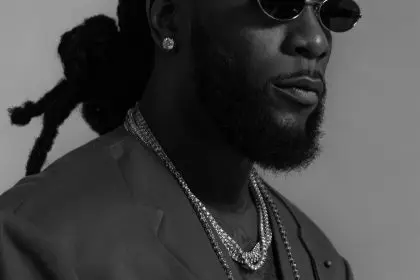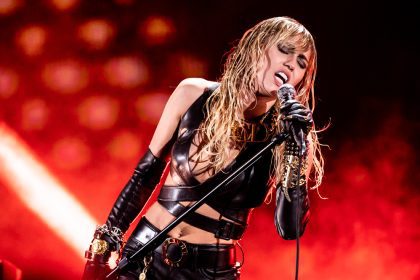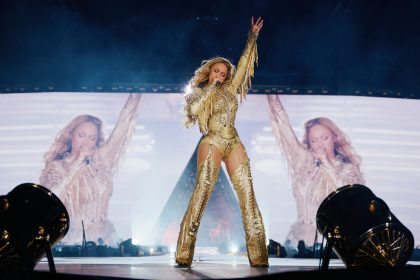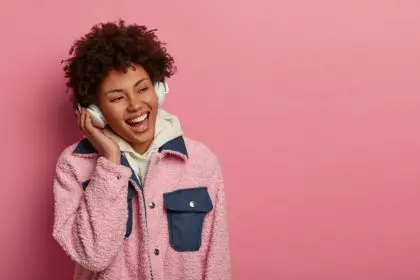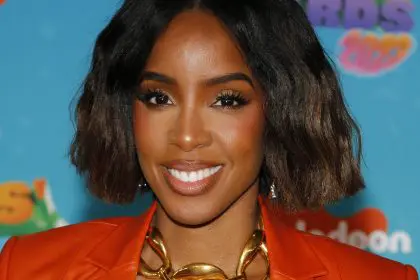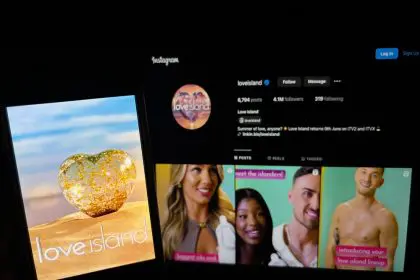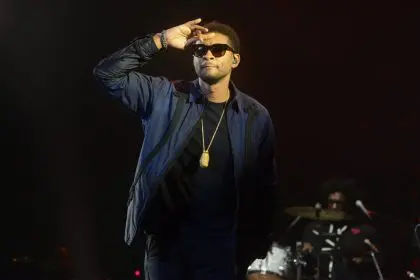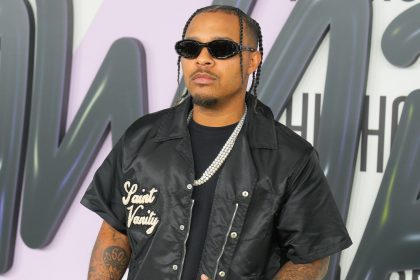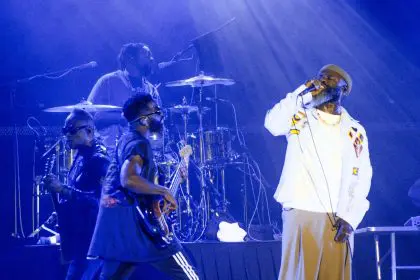
Emmy and Grammy Award-winning musical director Adam Blackstone has become the sonic architect behind some of music’s most defining moments. From Rihanna’s spectacular performances to Justin Timberlake’s memorable shows, Blackstone’s genius has shaped how audiences experience live music on the world’s biggest stages. The New Jersey and Philadelphia-based musician recently added another accolade to his impressive resume, a Grammy for Best Musical Theater Album for his work on Alicia Keys’ “Hell’s Kitchen.” As the founder of BASSic Black Entertainment, Blackstone continues to elevate the industry standard while opening doors for other Black and brown artists in spaces where representation has historically been limited. In an exclusive interview with Rollingout, Blackstone opens up about his musical journey, the power of nepotism as love, and breaking barriers in unexpected genres.
How has music expanded your world beyond what you originally envisioned?
Whether it’s me performing the anthem with a special guest at the world series or arranging it. Music is the catalyst that has gotten me to where I thought my mind and my other skillset was going to take me, it allows me to just dream big. I can do anything I want to do through the gift of music and I’m so thankful for that. Whether it’s music for video games, commercials, teaching, the world of music has opened up my world.
Is learning to play an instrument like piano a skill set for life?
For life, that’s something you never forget. I learned how to read music in the second grade, and again my skillset has increased. The sheet music has gotten harder but as an adult that’s something that I don’t forget, it’s almost like riding a bike. What happens for me is that I’m able to get a different call than maybe just the average play by ear musician, when they call me for a movie score or something like that or md the Oscars, I have to chart it out. So you playing that piano allows you to then hear what string instruments are doing. When you playing the piano, it allows you to tell me as a bass player what the root note is. You playing rhythmic piano like a Herbie allows you to tell the drummer what’s going on. So that’s a skill set for life. If we can get deep about it, the discipline that it takes to do that is something that we need to implement in our lives daily, practice schedule setting, the use of space, how loud space is.
What did winning a Grammy feel like and what doors has it opened?
So many doors opened up since I got the Grammy, specifically because of the category that I won in, best musical theater album. I must be honest and say I thought I would win a Grammy for other things before that, but my first Grammy is for best musical theater album that I produced and arranged and orchestrated with the incredible Alicia Keys. My play, Hell’s Kitchen, on Broadway right now, the Shubert Theater, I’m so thankful for that. My daughter saw it twice and she’s gonna go back.
Here’s the thing, the doors that open up for me seem to open up for other black and brown children as well. I don’t know if I saw, just to be honest, somebody that looked like me on Broadway when I was a child, and that doesn’t mean they weren’t there, because the Wiz was happening and Audra McDonald playing Billie. Things were happening, but for it to be somebody like myself into more of a pop vein. I still do hip hop, I still do r &b, I still love walking through my city of Philadelphia, and then to explain I’m so proud to be a native of New Jersey and Philadelphia and then what I won for, it wasn’t for a rap album, it wasn’t for R &B, it wasn’t even for my own personal jazz album, which I feel is the longest American culture of music. But something like Musical Theater is going to open the doors for the next person for sure.
Let’s talk about entrepreneurship and building a team in the music industry.
It is and we as a community have been on that. However, we are not always, they don’t always accept our recommendations. So for me to hold up that trophy in that category, they say, wait a minute, something’s working over there. Let’s go to what they’re doing, what are they doing? And so it’s my job to bring that to the forefront. I’m so much about inclusion, not just in diversity, but nepotism as well. These are my friends, these are my family rocking with me, my cousin, my whole manager, my wife is my CFO. My friends are my security, my band, all of that, they are my friends. They just happen to be the best in the world to me and all from right here.
Describe what it’s like to collaborate with industry legends like Alicia Keys and Jimmy Jam.
I think it shows their trust in me. They know that I’m a student of theirs and that I’m an artist first, musical director. I have to take self out of it, because if you have any sort of ego in this game, especially when you’re working for or with someone, it’s going to ruin you. And to me to know that a person like Jimmy Jam has made it already, what do I need to change anything for? They may want to update some things and see my thought process for 2025. But as far as it being a new work, I don’t need to do that. So what I do is try to make what they’ve already done, enhance it and make it more of a movie for today.
Alicia, same way, Justin Timberlake, Rihanna, Jill Scott, working with Ahmir Questlove Thompson, same thing. It’s like they encourage me to press the boundaries and push limits, but also remain integral about where the music came from.


